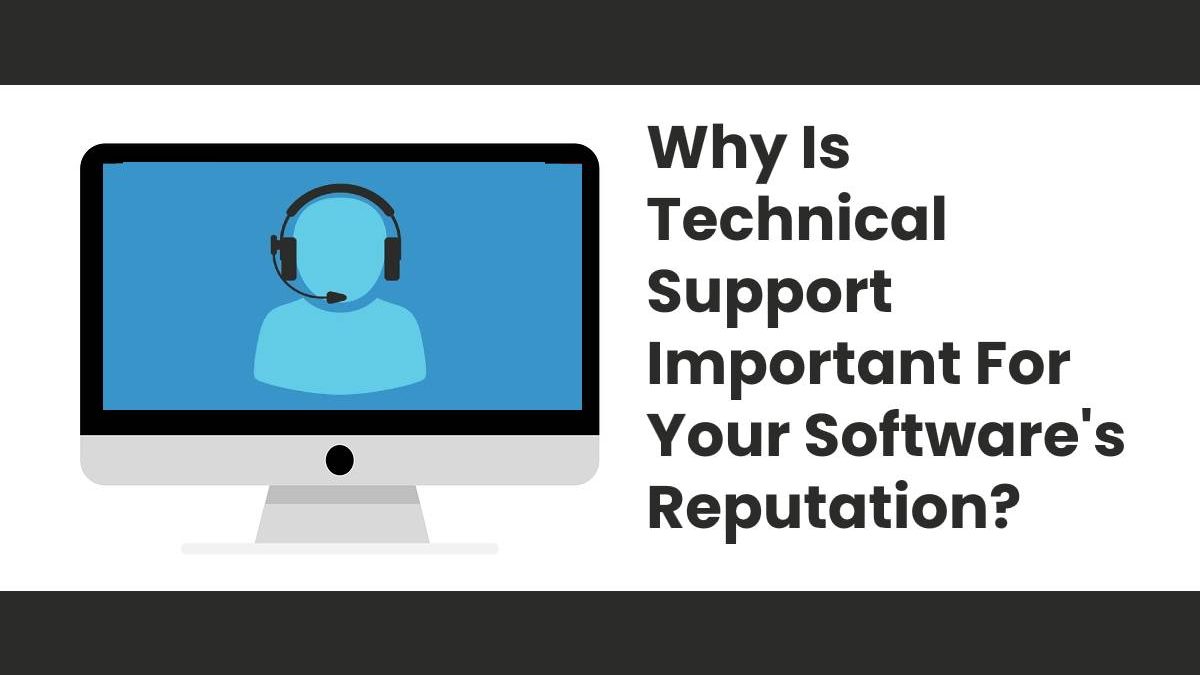What is a technical support team, and why is it essential? Managing your company’s reputation starts with software creation and extends to providing outstanding support.
For software today to be successful, it must be easy to use. Developers today create intuitive designs that anyone may understand. They then support their products with smart chatbots so that clients may get the answers they need instantly.
The system works well. Firms get fewer support requests from clients, and clients get the assistance that they require. Everything works so smoothly that businesses may ask if they still need to provide technical support, and, if so, why.
The short answer is that it’s crucial to sustain your firm’s good reputation. In this article, we’ll answer the question, “Why is technical support important for managing your software’s reputation?”
Online reputation management tool specially designed to help you monitor and grow your customer reviews with ease.
Table of Contents
Why is Technical Support Important?
Providing technical support is one facet of outstanding customer service. Not everyone is equipped with the analytical skills to think through what might seem like a simple problem. You might feel that the answer is obvious, but if your client disagrees, your reputation suffers.
Fortunately, there is a solution that provides a cost-effective, professional alternative. Outsourcing your tech support to a center that specializes in IT support gives your client access to the skills and service they deserve.
Providing generous “tech” support makes it possible for clients to get their queries answered quickly and efficiently. It saves them much time and frustration in coming up with a workaround.
Why is Technical Support Important for Software Developers?
More importantly, proper IT support ensures that the client uses the software correctly. They’ll get the full benefit, and will consequently feel more satisfied with the product.
If you’re not providing this resource for clients, you risk them having to work things out on their own. If this process becomes too frustrating, they’ll give up. Even if they do get it to work, they’ll always see your using your product as challenging.
They’ll actively look for an alternative, and may tell others how “bad” their experience was. At that stage, it won’t matter that the user made a simple mistake. All that the others will learn is that your software didn’t deliver.
What is a Technical Support or Assistance Team?
Companies typically divide their call centers into two specific areas:
- Customer support
- Technical assistance
Customer support deals with, amongst other things, issues such as incorrect billing, renewing a product, and changing addresses. Consultants may also try to upgrade the client’s product or cross-sell something else to them.
The lines may blur slightly, as consultants often teach the customer how to get the best use from the software.
If you’re wondering, “What is a technical support team and how does it differ?” there’s a subtle difference.
Technical assistance focuses solely on the usability of the product. The consultants are familiar with issues that might arise when using the software. They’re able to provide solutions related to these issues, but won’t deal with administrative queries.
Assistance in this area includes:
- Installation and compatibility advice
- Troubleshooting
- Error messages
- Configuration
The configuration of the tech and customer service departments are quite different. If a client has a problem with their customer service consultant, they may escalate the call to a manager. The tech department, by contrast, typically consists of four tiers of support.
The Tiers of Tech Support
Pre-Support
During this phase, the client tries to find the answer on their own. They may read the manual or search for help online. Companies must actively monitor social media, online forums, and other online resources for reviews or questions.
Doing so allows you to lead the narrative and ensure that the customer gets the correct answers.
Self-Service
During this phase, the customer visits your website to find the answer. Facilitate this process by providing a well-organized knowledge base. Brainstorm frequently asked questions and publish them to the website to better enable self-service.
Human Contact
At this point, your client cannot find the answers they need. They’ll now contact the help desk for further assistance.
You must manage this interaction carefully. The client is frustrated and needs assistance. A chatbot isn’t ideal because the customer will have found any of the bot’s answers online.
To effectively de-escalate the situation, allow the client to speak to a highly-trained person. This contact may be the first time the customer speaks to your company and requires the human touch.
Employees in the call center should be well-versed in your product, and expert communicators. They must be passionate about solving the client’s query as quickly and pleasantly as possible.
Here is where many companies fail. They route calls through to the IT department. While the employees there have the technical skills to answer queries, it’s not an ideal solution.
Employees in these departments might:
- Have to juggle the calls and their daily work. They won’t be able to give their full attention to either.
- Not have the interpersonal skills training to deliver an outstanding service experience.
A dedicated call center provides a more controlled environment with expert guidance for customers. Some companies shy away from this option due to the expense.
Escalation
The call center won’t be able to deal with every issue. Some might require attention from a product specialist. In such cases, the call center escalates the query to someone in the IT department.
Final Notes
Software doesn’t necessarily need to exceed the client’s expectations. It must, however, deliver what’s promised. Providing a trained support team protects your company’s reputation by allowing clients to get the most out of their purchases.

